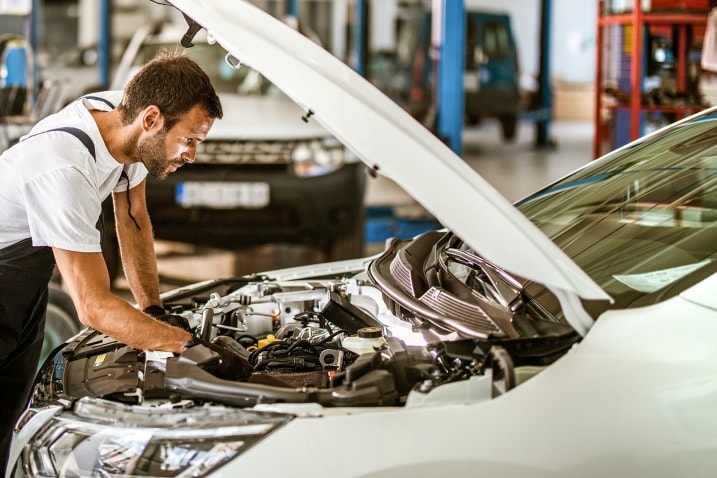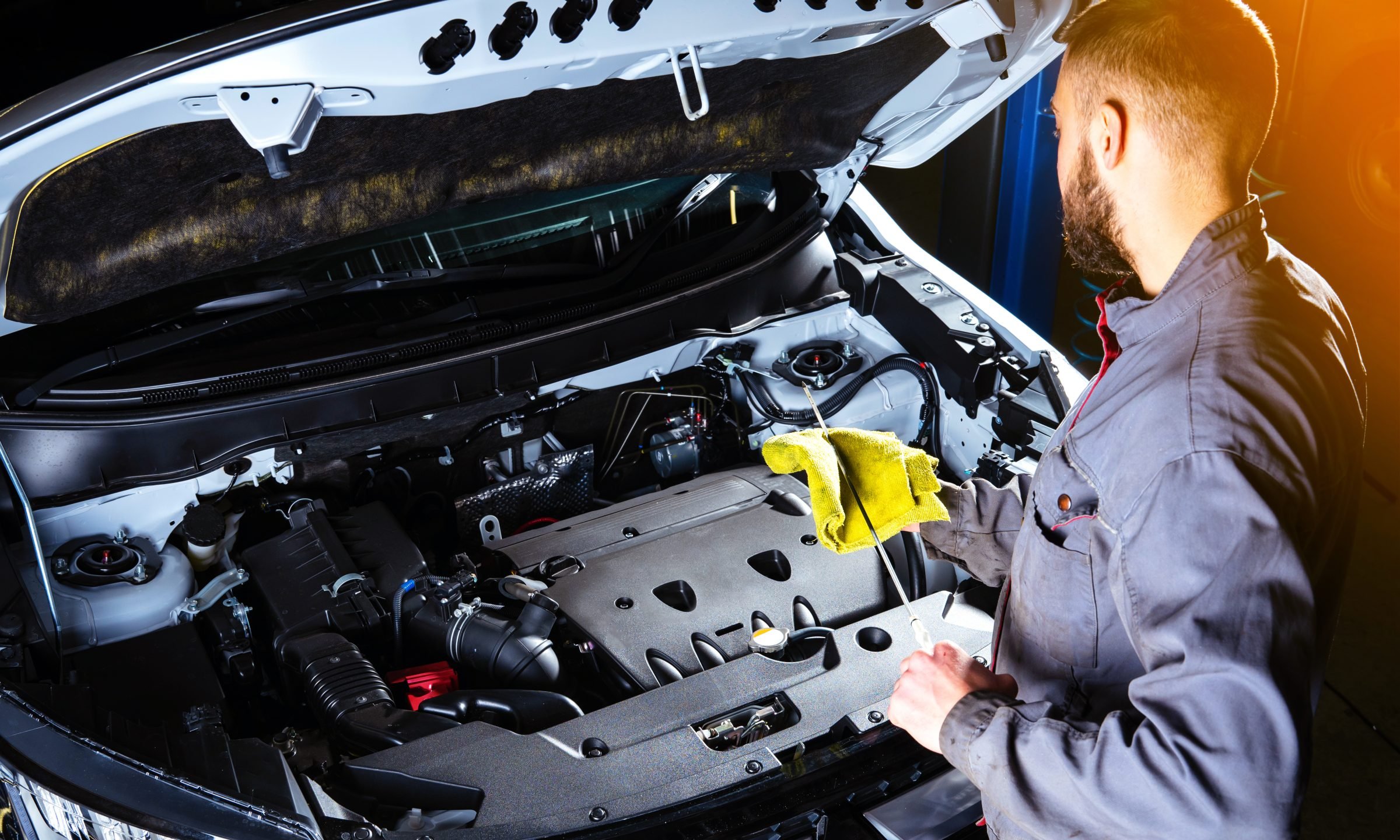Featured
When your lorry calls for substitutes or repairs, among one of the most crucial decisions you'll need to make is whether to make use of Original Devices Supplier (OEM) parts or aftermarket components. Both alternatives feature their own benefits and disadvantages, and picking the right one can significantly affect the performance, durability, and price of your car fixing. Right here's a guide to help you make an educated choice between OEM and aftermarket components.
![]()
What Are OEM Components? OEM components are made by the very same maker that produced the original elements in your automobile when it was constructed. These parts are made specifically for your make and model, ensuring an ideal fit and matching the specs of the original parts. If you possess a Ford vehicle, an OEM component would be produced by Ford or an accredited Ford distributor.
Because they are made to satisfy the producer's precise criteria, OEM components are much more most likely to function well and last as long as the initial component. In addition, making use of OEM components can help maintain the resale worth of your lorry given that possible buyers usually choose cars that have been fixed with original components.
What Are Aftermarket Parts? Aftermarket parts are generated by third-party producers and are developed to fit a variety of lorries, not simply one particular make or design. These parts are frequently more economical than OEM components since they are generated in greater quantities, and the producers don't birth the exact same growth prices as the initial producers.
While aftermarket parts are made to be suitable with the majority of automobiles, the high quality can differ depending upon the brand and manufacturer. Some aftermarket components are high-quality and provide similar performance to OEM parts, while others might be made with more affordable products and might not perform also or last as lengthy.
![]()
Benefits of OEM Components. Guaranteed High Quality and Fit: Considering that OEM components are made by the vehicle's manufacturer, they're assured to fulfill the specific specifications of the original parts. This makes certain an accurate fit and optimum performance. Service warranty: OEM parts typically feature a supplier's service warranty, offering comfort and defense versus defects. Resale Worth: Autos repaired with OEM components are often more attractive to purchasers, which can help maintain and even increase the resale value of your auto. Long life: OEM components are usually constructed to last as long as the initial components, meaning you may have less issues and replacements in the future. Advantages of Aftermarket Parts. Lower Cost: Aftermarket parts are usually much more affordable than OEM components, making them an eye-catching option for those seeking to conserve cash on fixings. Selection: There is a larger range of aftermarket components readily available, including upgraded or performance-enhancing alternatives that may not be available in OEM parts. This is specifically eye-catching to cars and truck fanatics that intend to modify their lorry. Schedule: Aftermarket components are extensively available and typically easier to find than OEM parts, which can be specifically practical for older vehicles or hard-to-find elements. Innovation: Many aftermarket parts are designed with renovations or included functions that enhance the vehicle's efficiency or appearance, such as high-performance brake pads or exhaust systems. Disadvantages of OEM Components. Greater Expense: OEM components are typically more expensive than aftermarket alternatives, which can be a significant factor if you get on a budget plan. Limited Alternatives: OEM components might offer less choices for personalization or efficiency upgrades contrasted to aftermarket parts. Drawbacks of Aftermarket Parts. Irregular High quality: Aftermarket components can vary commonly in regards to top quality. Some suppliers produce parts that do equally as well as OEM elements, while others might reduce edges to save prices. Fitment Issues: While aftermarket components are designed to fit most lorries, they may not always be a precise suit for your car, leading to potential compatibility problems. Service Warranty Limitations: Aftermarket parts might not include guarantees or may use minimal security, which could result in extra costs if the part fails too soon. How to Select Between OEM and Aftermarket Components. When deciding between OEM and aftermarket parts, there are a number of elements to take into consideration:
Budget: If cost is a main problem, aftermarket components may be the far better choice because of their lower rate. Nevertheless, if you can afford it and are worried concerning long-lasting reliability, OEM components could be worth the financial investment. Lorry Age and Condition: If you own a more recent automobile that's still under guarantee, making use of OEM parts may be the most effective selection to maintain the vehicle's integrity and preserve its resale value. For older automobiles, aftermarket components can be a cost-efficient remedy to maintain the cars and truck operating. Efficiency and Customization: If you have an interest in enhancing your car's efficiency or look, aftermarket components use even more range and options for upgrades. Manufacturer Suggestions: Some lorry manufacturers might advise or require the use of OEM components for particular repair work, particularly for safety-related components like airbags or brake systems. Always consult your proprietor's handbook or a professional technician for support. Verdict. Eventually, the choice between OEM and aftermarket parts relies on your details demands, preferences, and spending plan. While OEM components provide an ensured fit and higher top quality, aftermarket parts can supply price savings and a more comprehensive variety of choices. By meticulously taking into consideration factors like expense, automobile age, and wanted performance, you can make the finest choice for your automobile repair work, ensuring that your cars and truck stays in great functioning condition without breaking the bank.

What Are OEM Components? OEM components are made by the very same maker that produced the original elements in your automobile when it was constructed. These parts are made specifically for your make and model, ensuring an ideal fit and matching the specs of the original parts. If you possess a Ford vehicle, an OEM component would be produced by Ford or an accredited Ford distributor.
Because they are made to satisfy the producer's precise criteria, OEM components are much more most likely to function well and last as long as the initial component. In addition, making use of OEM components can help maintain the resale worth of your lorry given that possible buyers usually choose cars that have been fixed with original components.
What Are Aftermarket Parts? Aftermarket parts are generated by third-party producers and are developed to fit a variety of lorries, not simply one particular make or design. These parts are frequently more economical than OEM components since they are generated in greater quantities, and the producers don't birth the exact same growth prices as the initial producers.
While aftermarket parts are made to be suitable with the majority of automobiles, the high quality can differ depending upon the brand and manufacturer. Some aftermarket components are high-quality and provide similar performance to OEM parts, while others might be made with more affordable products and might not perform also or last as lengthy.

Benefits of OEM Components. Guaranteed High Quality and Fit: Considering that OEM components are made by the vehicle's manufacturer, they're assured to fulfill the specific specifications of the original parts. This makes certain an accurate fit and optimum performance. Service warranty: OEM parts typically feature a supplier's service warranty, offering comfort and defense versus defects. Resale Worth: Autos repaired with OEM components are often more attractive to purchasers, which can help maintain and even increase the resale value of your auto. Long life: OEM components are usually constructed to last as long as the initial components, meaning you may have less issues and replacements in the future. Advantages of Aftermarket Parts. Lower Cost: Aftermarket parts are usually much more affordable than OEM components, making them an eye-catching option for those seeking to conserve cash on fixings. Selection: There is a larger range of aftermarket components readily available, including upgraded or performance-enhancing alternatives that may not be available in OEM parts. This is specifically eye-catching to cars and truck fanatics that intend to modify their lorry. Schedule: Aftermarket components are extensively available and typically easier to find than OEM parts, which can be specifically practical for older vehicles or hard-to-find elements. Innovation: Many aftermarket parts are designed with renovations or included functions that enhance the vehicle's efficiency or appearance, such as high-performance brake pads or exhaust systems. Disadvantages of OEM Components. Greater Expense: OEM components are typically more expensive than aftermarket alternatives, which can be a significant factor if you get on a budget plan. Limited Alternatives: OEM components might offer less choices for personalization or efficiency upgrades contrasted to aftermarket parts. Drawbacks of Aftermarket Parts. Irregular High quality: Aftermarket components can vary commonly in regards to top quality. Some suppliers produce parts that do equally as well as OEM elements, while others might reduce edges to save prices. Fitment Issues: While aftermarket components are designed to fit most lorries, they may not always be a precise suit for your car, leading to potential compatibility problems. Service Warranty Limitations: Aftermarket parts might not include guarantees or may use minimal security, which could result in extra costs if the part fails too soon. How to Select Between OEM and Aftermarket Components. When deciding between OEM and aftermarket parts, there are a number of elements to take into consideration:
Budget: If cost is a main problem, aftermarket components may be the far better choice because of their lower rate. Nevertheless, if you can afford it and are worried concerning long-lasting reliability, OEM components could be worth the financial investment. Lorry Age and Condition: If you own a more recent automobile that's still under guarantee, making use of OEM parts may be the most effective selection to maintain the vehicle's integrity and preserve its resale value. For older automobiles, aftermarket components can be a cost-efficient remedy to maintain the cars and truck operating. Efficiency and Customization: If you have an interest in enhancing your car's efficiency or look, aftermarket components use even more range and options for upgrades. Manufacturer Suggestions: Some lorry manufacturers might advise or require the use of OEM components for particular repair work, particularly for safety-related components like airbags or brake systems. Always consult your proprietor's handbook or a professional technician for support. Verdict. Eventually, the choice between OEM and aftermarket parts relies on your details demands, preferences, and spending plan. While OEM components provide an ensured fit and higher top quality, aftermarket parts can supply price savings and a more comprehensive variety of choices. By meticulously taking into consideration factors like expense, automobile age, and wanted performance, you can make the finest choice for your automobile repair work, ensuring that your cars and truck stays in great functioning condition without breaking the bank.
Latest Posts
Uncover the Top Auto Repair Discounts in Montclare, Chicago
Published en
1 min read
Take Advantage of Exclusive Auto Repair Deals in Chicago at Montclare Auto Repair
Published en
1 min read
Find Montclare Auto Repair’s Highly Requested Auto Repairs and Why Drivers Rely On Them
Published en
1 min read
More
Latest Posts
Uncover the Top Auto Repair Discounts in Montclare, Chicago
Published May 27, 25
1 min read
Take Advantage of Exclusive Auto Repair Deals in Chicago at Montclare Auto Repair
Published May 25, 25
1 min read
Find Montclare Auto Repair’s Highly Requested Auto Repairs and Why Drivers Rely On Them
Published May 23, 25
1 min read